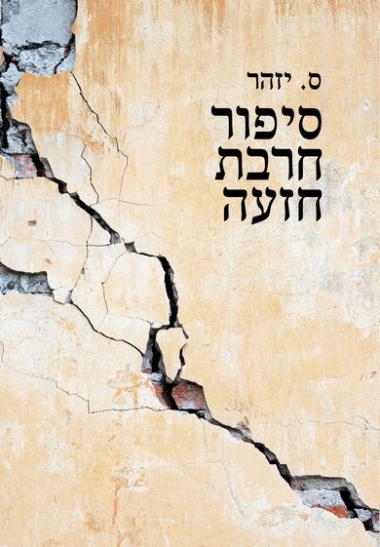
Hirbet Hiz’ah
Hirbet Hiz’ah, written after the battle sounds of the 1948 War of Independence had fallen silent, is one of the seminal works of Hebrew literature. An immediate sensation on publication, it became the focus of a raging public debate, and has continued to challenge and disturb till today. That alone would make Hirbet Hiz’ah worth reading, but the novella is much more than a vital historical document: it is also a great work of art. Written in a haunting, lyrical style, it tells of the expulsion of Palestinians from their village, Hirbet Hiz’ah, by a unit of Israeli soldiers who forced them over the border into refugee camps. Yizhar, who fought in the war, was the first in Hebrew prose to raise a pained protest against what he saw as a distortion of the Zionist enterprise, and tried to reconcile the rights of the Jews with those of the Palestinians.
As in all Yizhars writing, the novella’s strength is the inner plot: the hesitation, the indecision, and the extensive use of inner monologue. A conflict between personal and public moral issues forces the individual to make a decision with broad existential implications.
An absolute must for anyone interested in Middle Eastern literature and the Israel-Palestine conflict.


- Languages
-
Danish, Dutch, English, French, German, Greek, Italian, Norwegian, Spanish, Swedish
-
German
Frankfurt, Suhrkamp, 1998 -
Italian
(with The Prisoner): Turin, Einaudi, 2005 -
English
Jerusalem, Ibis, 2008;
London, Granta, 2011;
NY, Farrar, Straus and Giroux, 2014 -
Spanish
Barcelona, Minuscula, 2009 -
French
Paris, Galaade, 2010 -
Norwegian
Oslo, Aschehoug, 2011; pback: 2016 -
Greek
Athens, Melani, 2018 -
Swedish
Stockholm, Bonnier, forthcoming -
Dutch
Amsterdam, Athenaeum-Pollak & van Genepp, 2013 -
Danish
Copenhagen, Moeller, 2016: Audio, 2018
-
| Title | Hirbet Hiz’ah |
|---|---|
| Writer's Last Name | Yizhar |
| Writer's First Name | S. |
| Genre | Fiction |
| Publisher (Hebrew) | Zmora-Bitan |
| No. Pages | 130pp. |
| Book title - Hebrew (phonetic) | Sipur Hirbet Hiz’ah |
-
“ Hiz’ah remains painfully relevant, and the moral questioning lives on. ”
-
“ An extraordinary novella… A tribute to the power of critical thought. ”
-
“ Magnificent! ”
-
“ The story, by now an Israeli classic, deals with a dark side of history that many Israelis would prefer to forget....Author S.Yizhar: "I wrote this as a man who was hurt by what he saw. This story is about... any place where someone is suddenly caught in war. Instead of covering up what happened, we must atone for it." ”
